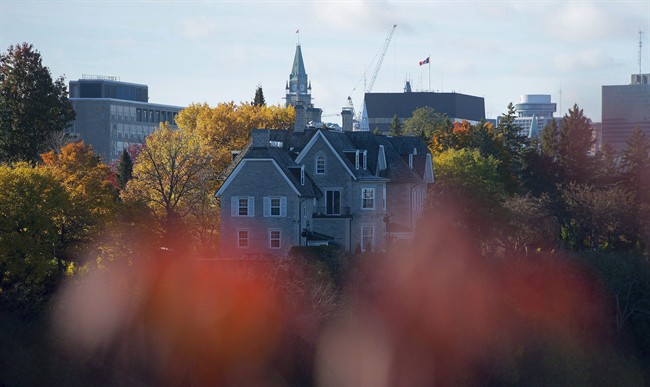The National Capital Commission has a lot of properties but not a lot of money to maintain them, according to the Auditor General’s report to the standing committee on public accounts Thursday.

In his brief of the report to the committee, auditor general Michael Ferguson determined that there was a significant deficiency in the NCC’s asset management practices, as well as weaknesses in its risk management practices.
According to the report, the NCC provided the data for the conditions of its assets which indicated more than one quarter of the assets were in fair, poor or critical condition.
“The Corporation determined that it did not have enough resources to carry out the work that it needed to do in order to restore and maintain its assets. Therefore it had to put off maintenance on some assets,” said Ferguson in his opening remarks. “We concluded that this was a significant deficiency because, if the Corporation’s assets continue to deteriorate, it might not be able to meet its mandate, and the assets could cause health and safety issues.”
The auditor general also found the NCC’s risk management practices lacking in two separate areas. First was in their overall risk management approach. According to the report, the NCC didn’t consistently assess its strategic and operating risks, prepare an inventory of all risks or even set any risk tolerances.

Get weekly money news
“This made it difficult for management and the Board to have comprehensive risk information to make decisions,” Ferguson said.
The second area was that the board and management did not describe to the Minister of Canadian Heritage in their annual corporate plan the risk of having insufficient resources to restore, maintain and preserve their assets.
Chairperson Marc Seaman and CEO Mark Kristmanson were at the meeting to represent the NCC and both agreed that there is work to be done when it comes to maintaining the NCC’s assets, but more help is needed.
“I have been stunned by the amount of properties owned by the NCC,” Seaman said. “This government’s announcement of $55 million in this year’s budget is very welcome. I’ve personally been impressed by the risk management framework brought to the board and in almost every other category the auditor general found a well-run organization.”
One of the major concerns for the committee is the condition of the prime minister’s official residence at 24 Sussex Dr. Currently, Prime Minister Justin Trudeau is not living in the house due to its poor condition.
“24 Sussex, generally speaking, is part of the 27 per cent of failing properties,” Kristmanson said. “In a deep dive portfolio analysis of official residences, 24 Sussex rates as being in poor condition. We are conducting studies and working with government to fix that.”
According to the NCC, the $55 million that it will receive from the federal government has been earmarked to fix infrastructure assets in poor condition, such as the Hog’s Back Bridge, not for any of the official residences. Though the NCC has a large selection of prime land it could sell, it is mandated only to use money gained from selling property to buy more property.
As of this committee meeting, the NCC has no plans for future assets. But Kristmanson said any potential future purchases will be for land in Gatineau Park.
The NCC owns 535 sq km of land, which is more than 10 per cent of the capital region. The properties include 145 bridges, 1,700 properties with 1,000 buildings, including official residents. It runs on an annual budget of $125 million and has a staff of 400 people not including students.




Comments